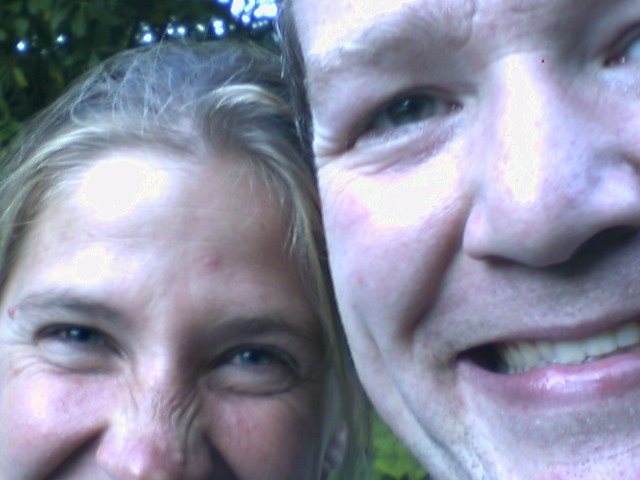So I recently attended the sunday morning service of Union church Seattle, a presbyterian church which I have previously written about here.
So to use the old sandwich technique: There are a few people at the church that I have gotten to know through various means whom I like rather enormously. Tony and Diana are at the top of the list. Closely following them is Renee, and James B. Also Tracy. and Jo. and Jennifer. So I was glad to get to connect with some of these people.
I realized that because of my own stuff, church services are generally speaking quite toxic for me. This was the second week in a row I had attended union. I really didn't wanna go today, but I went on the off chance that I could promote off the map live, because I think that it would be really connective and broadening for a lot of the people at union to attend this conference. I think Union is trying to go in some of the same directions as Off the Map, and so forth. So anyway, I went for that reason against my own best judgment, and pretty much paid for it the rest of Sunday, in which I felt astoundingly crappy--a feeling I could trace quite easily back to having gone to church. Not that that's the church's fault--like I said--it just triggers a lot of stuff for me. I should just have known better than to go. alas. I can do one week ok, but two weeks in a row is just over my limit.
Anyway, we had a kind of interesting discussion at our table. Before the discussion, there was time for prayer requests in the larger group. Someone at another table told a story of their friends who had just had a tiny little baby, and on the way to the baby shower, the dad, who was writing a motorcycle, was hit and killed. To which I responded under my breath "what a fucked up universe!". And then when James B. was leading in prayer I was sitting there weeping quietly as I pondered the horror of the dad dying right after the smallikin was born.
then right after that, James B. introduced the sermon topic and asked us to discuss, around our table, the subject of God's generosity--how have we experienced it, etc. So I stayed pretty quiet, but eventually my turn came, and I said I was still dealing with the dad dying in a motorcycle accident right after the baby was born, and I didn't see how I could jump to the subject of god's generosity that quickly. like god didn't seem super generous in light of that. so then there were a couple really astoundingly annoying and offputting typical christian responses to that--like "Well, I can hardly talk, since I didn't go through that--but maybe it has to do with our perspective--maybe we should instead be grateful for the time the dad *was* with the family". blah blah blah.
Jennifer, who is a sociology prof at SPU, and whose ideas I've found provocative in the past, said something interesting. She said that we want to be able to switch rapidly back and forth between calvinism and armenianism. Which is to say, we want all the autonomy and control which the armenian view gives us, but then when something really bad happens, all of a sudden we're all calvinistic and want to blame god for it. she gave as an example that her students will say things like "Well, God put me into this horrible marriage with this awful man". And she asks questions along the lines of--well, why are you all of a sudden so calvinistic about it?
I thought it was an interesting take on it. But it also kind of bothered me because in the context of our conversation it seemed like she was saying that ... maybe it was a bad decision to drive a motorcycle and take that risk when you have a new baby. which seems to me to be an enormously cold take on things. but maybe that's just me.
It has been my experience in churches in general, especially in this country, that we are not allowed to engage our negative emotion. Like you're not allowed to feel really really angry and super super sad and at the same time to think "god's a bastard, the world's FUBAR". And if you do start thinking/feeling along these lines, you get corrected. But I think that's pretty toxic. Cause engaging the thoughts and feelings while they are happening means dealing with them right then in some way which is a lot harder to do later on, after your attempts to disallow them have led to depression and all sorts of other crap.
Just me rambling a little bit.
It also seems to me that there is a really nasty corollary to Jennifer's observation about the calvinistic/armenian thing. It seems to me that Christians are required to externalize all the *good* stuff--like be thankful to god when good things happen, or when things don't happen as badly as they might have, etc. But they are required to *internalize* all the bad stuff--not allowed to blame god for the super bad stuff. Seligman talked about some of this in his learned helplessness and learned optimism work. It seems that optimists do just the opposite of this christian thing--they internalize the good stuff and externalize the bad stuff. So when something good happens, they say to themselves "Wow--look at what I did to cause that to happen. I rock!". But when something really bad happens they say "Wow, that sucks, but it's not my fault--it happened due to circumstances beyond my control"
Of course we can go too far in that direction too, I guess. Addicts, for instance, want to think that they have no autonomy in terms of their acting out, when actually there is a long chain of events that leads to that, and during that chain of events there are generally multiple places where they are making a decision where they are allowing the chain to continue.
Anyway, there was one other thing I wanted to say. I learned in the 12 steps that the difference between the church model and the 12 step model is that typically in the church model, there is a sort of hierarchy, either explicit or implicit, where you have God, then the church leadership, then the laity. whereas the idea in the 12 step model is you have God, and everybody else. The 12 step model both *worked* a lot better for me and is far more attractive to me. What I realized last Sunday at Union is they that use the church model. Which in one sense is probably okay--I mean they are a church. But I realized that I can't do church with that model anymore. so I got to thinking that there are exactly 3 churches with which I am familiar that employ a more 12 steppish model. What makes these 3 churches so astoundingly kewl is that the "leadership" isn't afraid of the people. That is to say, they're not the least bit worried that the people might do or say something shocking, or disruptive, or .... fill in the blank. cause god's got things handled, so they don't have to "handle" things. So how that comes out experientially is that I, as a "people" (and thus not as a "leader"), found that the *normal* thing was that in a regular community meeting (generally known as "Sunday morning service"), there was both opportunity for and actual practice of the regular people getting to say things--to share their stories, to share their thoughts. Not just as "prayer requests/praise reports, but also as "We are a community. Does anyone have something to share with the community?" You didn't have to get permission to do that. There was no sense that there was a gate or a hoop through which you'd have to go to gain that platform, or what have you.
On the other hand, of course that's ridiculous. What kind of insane community would open themselves so broadly? I mean to be *that* intentionally choosing to operate against the leadership/laity or us/them paradigm is astoundingly dangerous. People are nuts, and if don't at least put *some* controls in place, anything is, as my dad used to say, liable to happen.
god i have carried on, haven't I?
Note to self: "Self--save yourself some pain, and limit sunday morning church® visits to once per month, including *never* two weeks in a row."
(the lovely thing about owning a blog is that I can carry on at great length like this, and I don't have to do a damned thing about it--such as go back, reread it, boil it down, make it more consice, cut out all the excess verbage, figure out what my point was and stick to that, fix the organization of it, etc. etc. I can just kick back and know that at some level it's readable simply because I've read so much good writing that I can write (nearly) readable stuff in my rough draft. Kewl!)
















